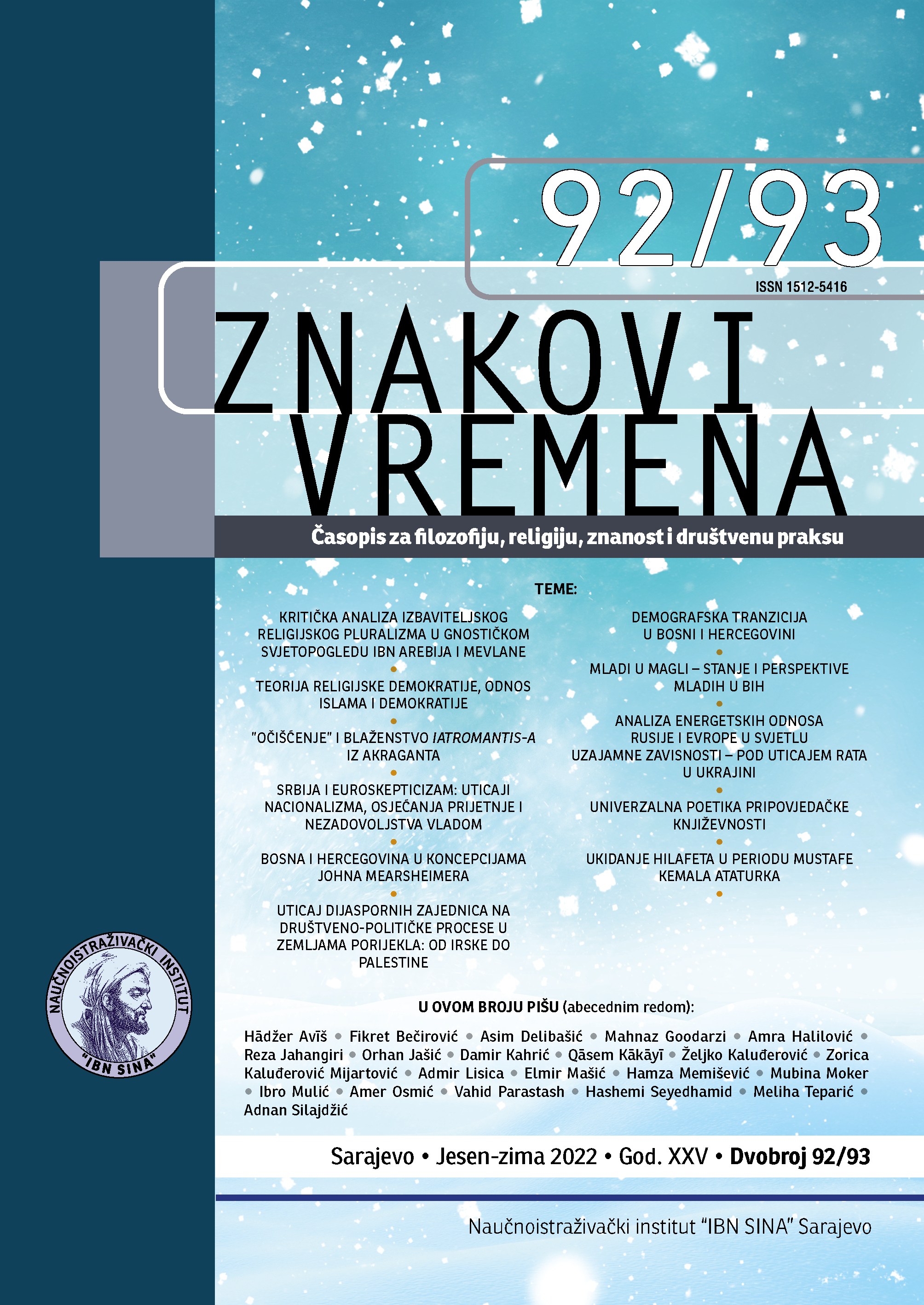Srbija i euroskepticizam: uticaji nacionalizma, osjećanja prijetnje i nezadovoljstva vladom
Serbia and Euroscepticism: the effects of nationalism, feelings of threat and dissatisfaction with the government
Author(s): Asim DelibašićSubject(s): Politics / Political Sciences, Political psychology, Politics and religion, Inter-Ethnic Relations
Published by: Naučnoistraživački institut »Ibn Sina«
Keywords: European Union; Serbia; Euroscepticism; nationalism; feelings of threat; trust in the church; trust in the government and state institutions;
Summary/Abstract: The term Euroscepticism denotes a negative attitude towards European integration, and more precisely towards the European Union itself, which is usually expressed as distrust towards the goals, policies, institutions, and expansion of the European Union. In many European countries, Euroscepticismis linked to the desire to retain national sovereignty, which is a feeling usually associated with certain national fears and opposition to certain conditions of European integration. The history of Serbian relations with the European Union is burdened by the Balkan wars in the last century and with the built-up feeling that Europe represents a kind of arch-enemy to the Orthodox culture of Serbian nation. Fierce national resentments over disputed territorial issues, which refers primarily to the Kosovo and NATO’s war against Serbia, along with the deep-rooted anti-Western stance of the Serbian Orthodox Church, constitute the very essence of the Serbian Euroscepticism. The purpose of this research was an analysis of the variables that influence Euroscepticism in Serbia, especially attitudes and feelings, such as those of national pride, trust in the church, feelings of the nation being threatened by the European Union, and feelings of dissatisfaction with the government and state institutions. Statistical analysis showed a weak, although significant, effect of nationalism, trust in the church, and the feeling of national threat from the European Union, but also an extremely strong effect of dissatisfaction with the functioning of the government and state institutions.
Journal: Znakovi vremena - Časopis za filozofiju, religiju, znanost i društvenu praksu
- Issue Year: XXV/2022
- Issue No: 92/93
- Page Range: 67-87
- Page Count: 21
- Language: Bosnian

